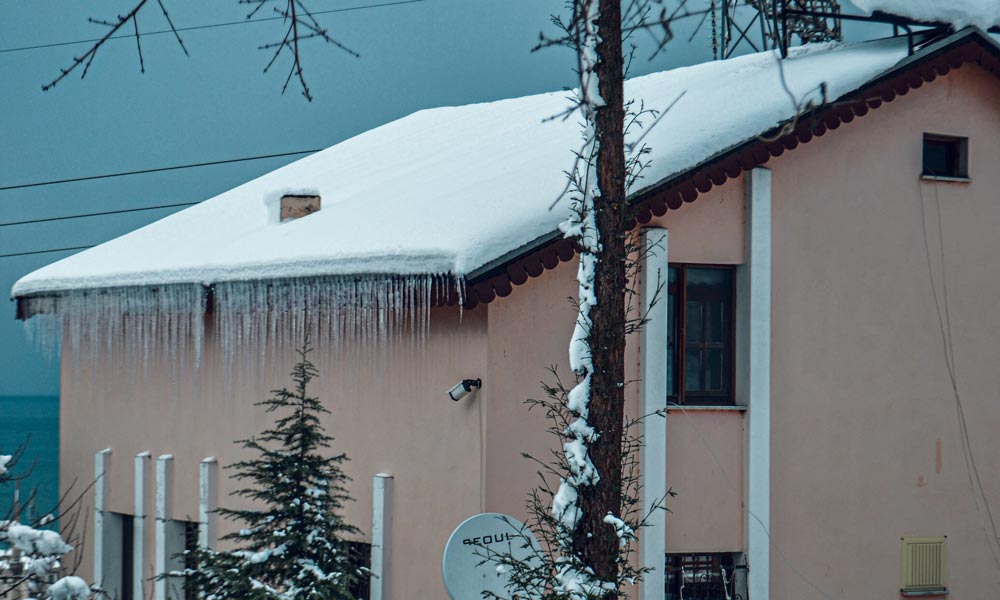Your building’s fire sprinkler system is essential to the health and safety of your employees and your property. While all fire sprinkler systems are designed to handle normal temperature fluctuations, you might be wondering about those pipes freezing up during the winter. Can fire sprinkler systems freeze in the winter, and if so, how do you prevent that from happening? Here’s what you need to know.
The Best Way To Keep Your Fire Sprinkler System from Freezing This Winter? Keep Up on Regular Maintenance!
In general, fire sprinkler systems don’t freeze often or easily. That said, it does happen, especially if it’s been some time since your system has seen any maintenance. While there really isn’t such a thing as winterizing your fire sprinkler system, there are a few regular maintenance tips and tricks that fire sprinkler system technicians use to lower the risk of frozen pipes in the winter. If you’re working with a reputable fire protection provider, their regular maintenance and service plan should have your system in shape for any kind of weather.
But, if it’s been some time since your fire sprinkler system has been serviced, it is a good idea to have it looked at before colder weather sets in. Here’s what your fire protection specialist will do to make sure your fire sprinkler system doesn’t freeze this winter:
How to Prevent Your Fire Sprinkler System From Freezing This Winter
There are a few regular maintenance tasks that are necessary to keep your fire sprinkler system from freezing this winter. Those tasks depend on what type of fire sprinkler system your building has installed.
Most typical commercial applications, like office buildings or apartment buildings, have a wet fire sprinkler system, which primarily makes use of water fire sprinklers. Some buildings, especially those with high-value assets or equipment, use a dry fire sprinkler system, which uses a gaseous fire suppression agent, rather than water. Each system requires slightly different cold-weather maintenance tactics.
Cold Weather Maintenance for Wet Fire Sprinkler Systems
The best way to keep a wet fire sprinkler system from freezing in the winter is to ensure that temperatures don’t fall below 50°F.
Maintain a Safe Temperature Wherever Possible
Most wet fire sprinkler systems are installed in areas where it’s unlikely that temperatures will fall below 50° F. Offices and commercial buildings are heated through the winter, keeping those pipes safe and warm. For wet fire sprinkler systems in a building, it’s just important to make sure that your building’s heat is working properly, and that all areas of the fire sprinkler system’s piping are exposed to warm temperatures.
Some buildings have unheated maintenance closets or equipment rooms. If your sprinkler system’s piping runs through any of those rooms, you’ll want to keep the doors and any air vents open to ensure warm air is circulating around the pipes. In areas of the building that won’t get any heat, your fire system technician can insulate the pipes for additional safety.
Install An Antifreeze Loop
In some unlikely cases, it’s possible for a wet fire sprinkler system to run from the heated building into an unheated structure like a parking garage. In systems like this, an antifreeze loop is implemented. The addition of antifreeze lowers the freezing point of the water, reducing the risk of the pipes freezing and bursting.
When your fire sprinkler technician performs your annual inspection, he or she will take test samples from your system to ensure the proper levels of antifreeze in the water. This is another great reason to make sure your building or facility is keeping up with regular maintenance. If there isn’t enough antifreeze in your sprinkler system, you run the risk of those pipes freezing and bursting.
Winter Maintenance for Dry Fire Sprinkler Systems
Even though dry fire sprinkler systems aren’t full of water, they can collect condensation over time, which can present a risk during the winter. Especially when dry fire sprinkler systems are implemented in unheated buildings like parking garages or outdoor event spaces, your fire protection specialist will perform the following key winter maintenance tasks to prevent dry fire sprinkler systems from freezing.
Check and Drain Low Points of the System
Dry fire sprinkler systems are designed with low points, where condensation collects and can be drained from the system regularly. During your annual inspection, your fire protection specialist will drain these low points to ensure there’s no excess water in your sprinkler system’s pipes.
Check Pitch and Angle of Pipes
During regular maintenance, and especially during cooler weather, your fire sprinkler system technician will check to make sure the pitch or angle of the pipes is directing any condensation towards the low point drains. This ensures that no water gets stuck in the system, where it can freeze and expand, causing damage.
As we mentioned, the best way to keep your fire sprinkler system from freezing this winter is to stay up on your regularly scheduled maintenance plan. Your fire sprinkler system technician knows exactly what to do to lower the risk of your fire sprinkler system from freezing during cold temperatures. When your system is well maintained, it is unlikely to encounter any problems, even during the winter.
If it’s been a while since your fire sprinkler system has been serviced, the Vanguard team is happy to help! Our experts will come out to your facility and give your system a tune-up to avoid freezing pipes and to keep your people and your facility as safe as possible this winter. Give us a call at 800-444-8719 or contact us online today to schedule a service call.


